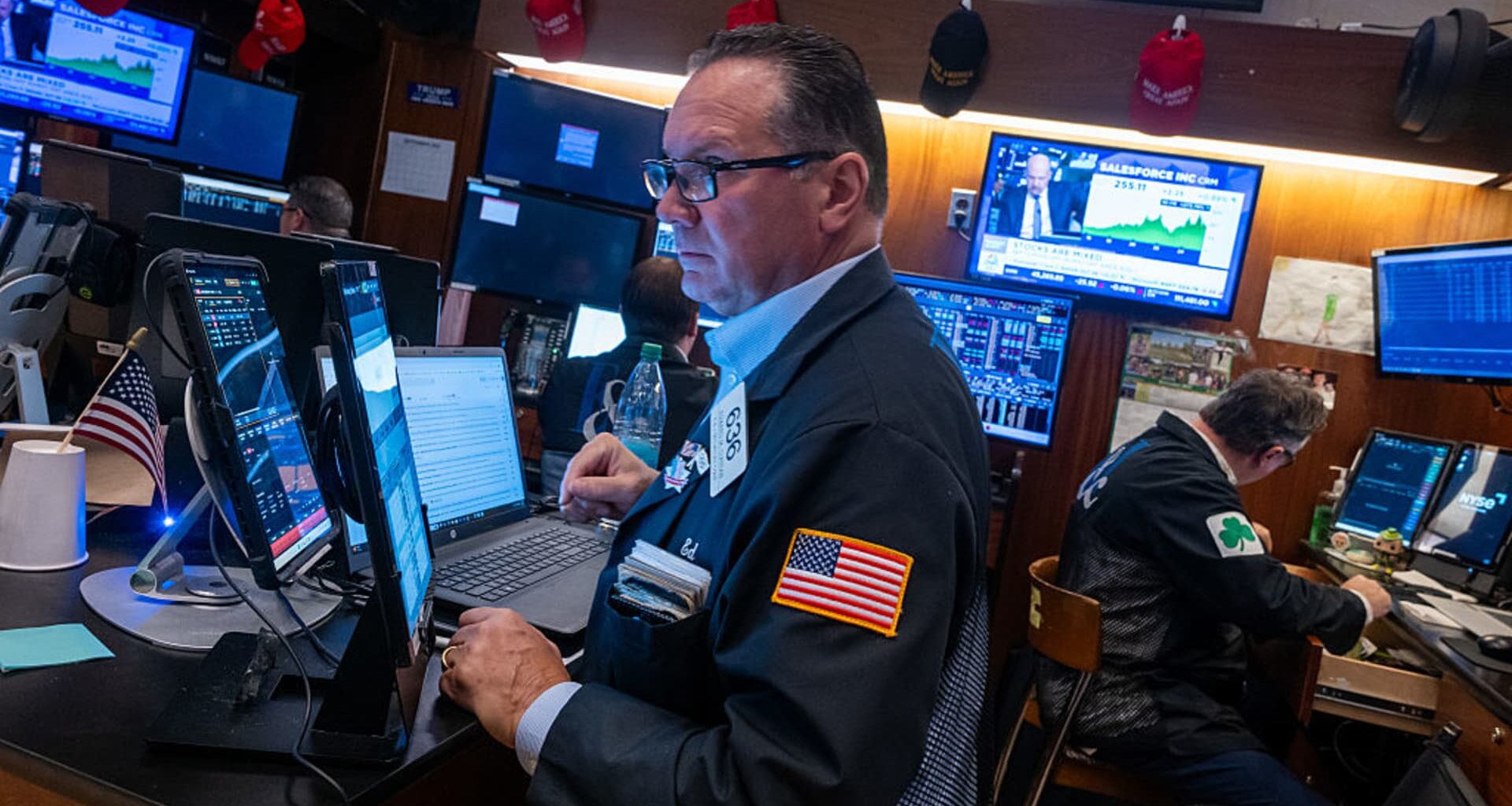Traders work on the floor of the New York Stock Exchange (NYSE) on September 03, 2025 in New York City.
Spencer Platt | Getty Images
A fragile rally dissolved in the first hour of trading Friday as rate cut hopes gave way to worries about a slowing economy following weaker-than-expected August jobs figures.
The S&P 500 dropped 0.4%, while the Nasdaq Composite declined 0.2%. The Dow Jones Industrial Average fell 222 points, or 0.5%.
All three leading indexes had reached fresh record intraday highs earlier in the session. At their highs, the broad market index, the tech-heavy Nasdaq and the blue-chip Dow were up about 0.5%, 0.8% and 0.3%, respectively.
Stock Chart IconStock chart icon
S&P 500, 1-day
The August jobs report saw the U.S. economy add 22,000 jobs on the month, the Bureau of Labor Statistics reported Friday. That’s below the 75,000 that economists polled by Dow Jones had expected. The unemployment rate also rose to 4.3%, in line with expectations.
Traders are hoping the reading will lend support to the Fed’s case to go ahead with an expected rate cut at its September policy meeting. Fed funds futures trading suggests that benchmark interest rates will likely move a quarter percentage point lower when the central bank makes a decision on Sept.17, according to the CME Group’s FedWatch tool.
Not only that, traders put a half-point cut in play for mid-month following the payrolls data, per the FedWatch tool. That’s up from a zero chance of a super-sized cut the day before.
“Slower job gains, combined with an uptick in the unemployment rate and moderating wage growth, support the view that the rate of positive change in the labor market has slowed significantly,” said Jamie Cox, managing partner at Harris Financial Group. “These employment data give the Fed all the reasons it needs to shift its balance of risks and lower rates in two weeks.”
Investors were heading into the August nonfarm payrolls report with stocks coming off of a fresh record. They are betting rate cuts will recharge an economy that is flagging but still in no danger of a recession. Though, these latest jobs figures, where the June payrolls number was revised to show the first job loss since the pandemic, may start to raise recessionary concerns.
JPMorgan and Wells Fargo paced the negative reversal on fears a slowing economy may hit loan growth. Industrials Boeing and GE Aerospace also got hit on fears of a troubled economy.
However, Broadcom was a standout performer, with the stock popping 10% on the heels of the chipmaker’s latest quarterly results beating Wall Street’s expectations. The company’s chief executive, Hock Tan, also disclosed in a call with analysts that Broadcom had secured $10 billion in custom AI chip orders from a new customer.
Nvidia shares dropped 2%, as Broadcom’s strong results may signal there’s growing competition for the AI darling. Palantir, another artificial intelligence favorite that’s been under pressure of late, slid 1%.


